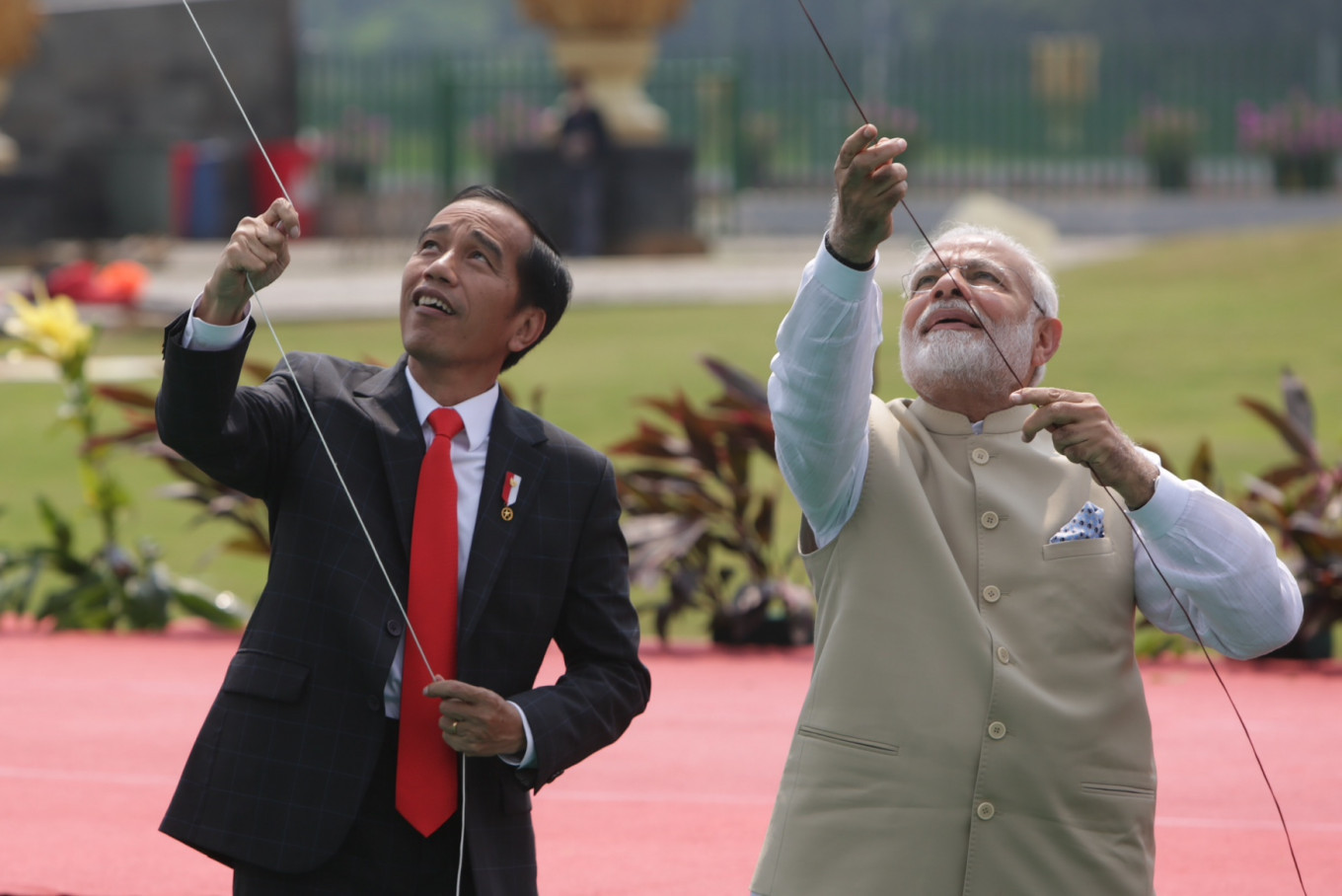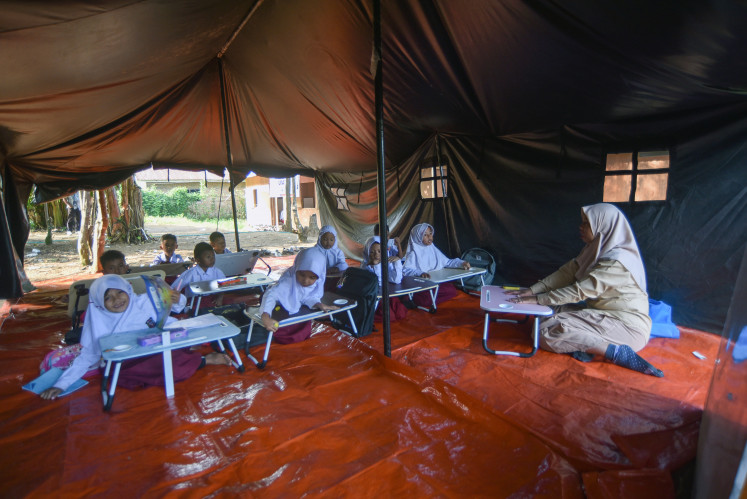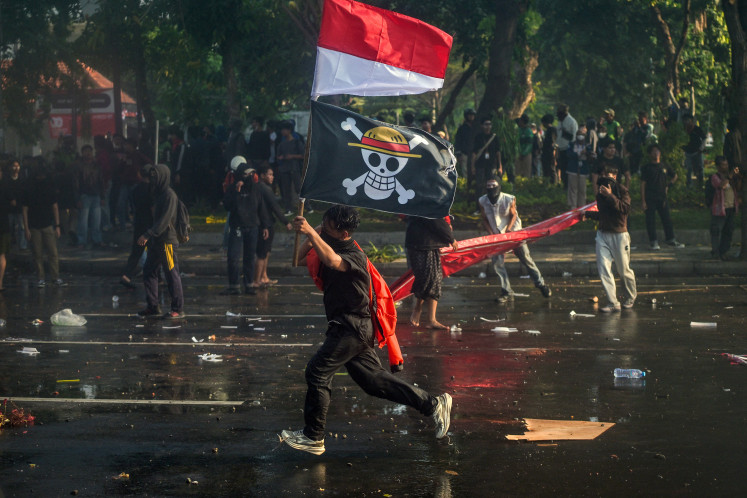Popular Reads
Top Results
Can't find what you're looking for?
View all search resultsPopular Reads
Top Results
Can't find what you're looking for?
View all search resultsIndia, the ray of hope for a region mired by superpower rivalry?
India-ASEAN trade and connectivity must be prioritized to bolster New Delhi’s profile in the Southeast Asian region.
Change text size
Gift Premium Articles
to Anyone
I
ndia’s relations with Southeast Asian states have come a long way from estrangement in the 1990s to contemporary strategic engagement since 2014. As firm acknowledgement towards the mutual desire of both sides to expand and deepen their ties, India and ASEAN elevated their relations further to a comprehensive strategic partnership in November 2022.
However, while India-Southeast Asian relations have exponentially improved since the past two decades, the need for New Delhi to pay more attention to the security concerns of Southeast Asian states and consistently operationalize robust cooperative policies beyond rhetoric is crucial for both sides to maximize the potential of their reinvigorated partnership.
Southeast Asia serves as a critical avenue for international commerce and power projection.
Accordingly, the United States-China power competition continues to plague the volatile security architecture of the region, pushing Southeast Asian states to pick sides at the expense of their long-term security interests and developmental trajectory.
Consequently, amid ongoing shifts in the distribution of power in the continent, the rise of India as a potential great power and pillar in an emerging multipolar Asia serves as another notable development.
While India’s overall material capabilities are still dwarfed by those of the US and China, one cannot disregard the significance of its role as an emerging force in Asian affairs. Being the world’s largest democracy, India’s normative heft, its robust diplomatic networks and adherence to strategic autonomy add further value to its importance in Asia’s evolving geopolitical architecture.
Additionally, as an Asian power being aware of the difficulties in engaging with an assertive China, India serves as a partner for Southeast Asian countries.
From regular high-level meetings to expanding and enhancing cooperation towards maritime security, information sharing, trade, and connectivity, the past few years have witnessed closer and more robust India-Southeast Asian strategic relations. In a diplomatic breakthrough, New Delhi has also become more vocal and active toward the plight of Southeast Asian states in the South China Sea.
In fact, the maiden ASEAN-India maritime exercise will also take place early this year as an indication of mutual interest from both sides to enhance interoperability and coordination to address emerging regional security issues.
Moreover, the region has welcomed a more active role from India as a trusted security provider and capacity builder, given its advantage of presenting itself as a benign and responsible power with no axe to grind and an interest to preserve the rules-based order, while seeking to cooperate based on mutual interests and not bloc politics.
Furthermore, the manner in which India has demonstrated political maturity in addressing ongoing international conflicts converges well with the interests and concerns of Southeast Asian states. In fact, both the Indo-Pacific Oceans Initiative (IPOI) and the ASEAN Outlook on the Indo-Pacific (AOIP) put great emphasis on maintaining inclusivity and ASEAN’s centrality in the region.
However, while India’s engagements with Southeast Asia have considerably deepened and broadened in the past few years, much room remains for India to improve its image and partnership in the region. While a recent ISEAS Institute survey highlighted a more favorable perception towards India, it also indicated how public opinion among Southeast Asian states is still uncertain of New Delhi’s political will to lead. However, such views are understandable given that India’s interaction with Southeast Asia in the past decades were marred with inconsistencies.
To address such concerns, India-ASEAN trade and connectivity must be prioritized to bolster New Delhi’s profile in the Southeast Asian region. Additionally, given the fault lines occurring within ASEAN brought by external geopolitical factors, India must continue to consistently deepen bilateral and sub-regional modes of cooperation within ASEAN based on shared multi-dimensional interests, concerns and goals.
These practical recommendations will not only allow India to open more channels for engagement in Southeast Asia, but also demonstrate its desire to proactively address the sensitivities and concerns harbored by the regional states.
As challenges remain, it is important not to discount the overall pattern of India-Southeast Asian strategic relations since the last two decades. While the depth of India’s relations with Southeast Asia are still outweighed by China, Japan, and the US, the nature of its strategic engagements with Southeast Asian states has undeniably acquired multi-faceted dimensions.
Therefore, as India’s material capabilities continue to grow, it will be necessary for New Delhi to translate this to effective and consistent policies toward Southeast Asia.
***
Don McLain Gill is director for South and Southeast Asia, Philippine-Middle East Studies Association (PMESA), Manila. The article was based on his comments in an interview with ex-editor MSN Sanjay Kumar and has appeared in Bernama.











